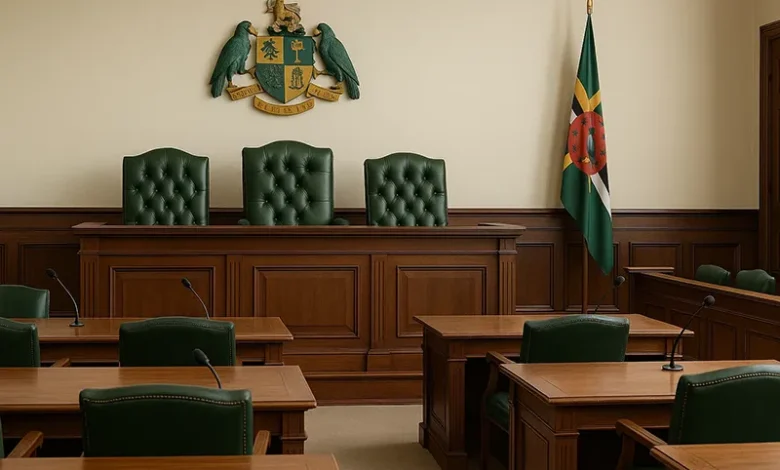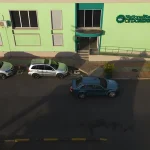Judicial System of Dominica

Dominica’s judicial system is firmly grounded in the British common law tradition and structured to safeguard legal rights, uphold justice, and ensure robust governance. It includes a clear hierarchy of courts, a professionally overseen prosecutorial body, and implementation mechanisms that address civil and criminal matters.
Judicial System of Dominica: Structure and Hierarchy
The judicial system’s base is the Magistrates’ Courts, which preside over minor offences, traffic violations, small civil claims, and family matters and conduct preliminary inquiries for more serious indictable cases. Multiple magistrate benches exist island-wide, with the primary court located in Roseau, on Dame Eugenia Charles Boulevard.
Escalating beyond this tier, complex cases, such as those dealing with serious criminal matters, significant civil disputes, and constitutional questions, are transferred to the High Court of Justice, featuring resident judges within the Eastern Caribbean Supreme Court (ECSC) framework. Appeals from this court proceed to the ECSC Court of Appeal, which travels among its member states.
As of March 2015, Dominica recognized the Caribbean Court of Justice (CCJ) as its final appellate court, representing a regional commitment to judicial independence and attribution of sovereignty.
Prosecutorial Independence and Legal Oversight
Legal administration is centralized under the Attorney General, who advises the government and oversees key institutions such as the Director of Public Prosecutions Office, Legal Aid Clinic, and various civil registries. All public prosecutions are managed by the DPP under the Ministry of National Security. Judicial appointments, particularly to the High Court, are handled through the ECSC’s Judicial and Legal Services Commission, reinforcing independence.
Law Enforcement, Corrections, and Rule of Law
The Commonwealth of Dominica Police Force handles crime prevention, investigation, and public safety. It includes specialized units addressing narcotics and cybercrime, which coordinate with regional bodies like IMPACS and CARICOM RSS. While community confidence in the police is generally favorable, public trust in accountability mechanisms remains moderate.
Offenders are held within the Stock Farm prison facility, managed by the Dominica Prison Service. Despite most facilities aligning with international norms, the system faces challenges such as overcrowding, insufficient training, and extended pre-trial detentions. Legal frameworks introduced for juvenile justice and probation are part of ongoing reform initiatives.
Challenges and System Reforms
Despite strong legal foundations, Dominica’s system faces persistent issues:
- Backlogs and delays in case resolution due to limited judicial resources
- Insufficient victim support services, especially for domestic and sexual violence
- Inadequate legal access in rural areas and infrastructure limitations in remote communities
The government has begun solutions including digitizing court records, expanding legal aid services, piloting alternative dispute resolution (ADR) schemes, and reforming juvenile justice procedures. Partnerships with organizations like UNDP, the CCJ Academy for Law, and USAID support improvements in judicial efficiency, training, and the promotion of rule-of-law initiatives




